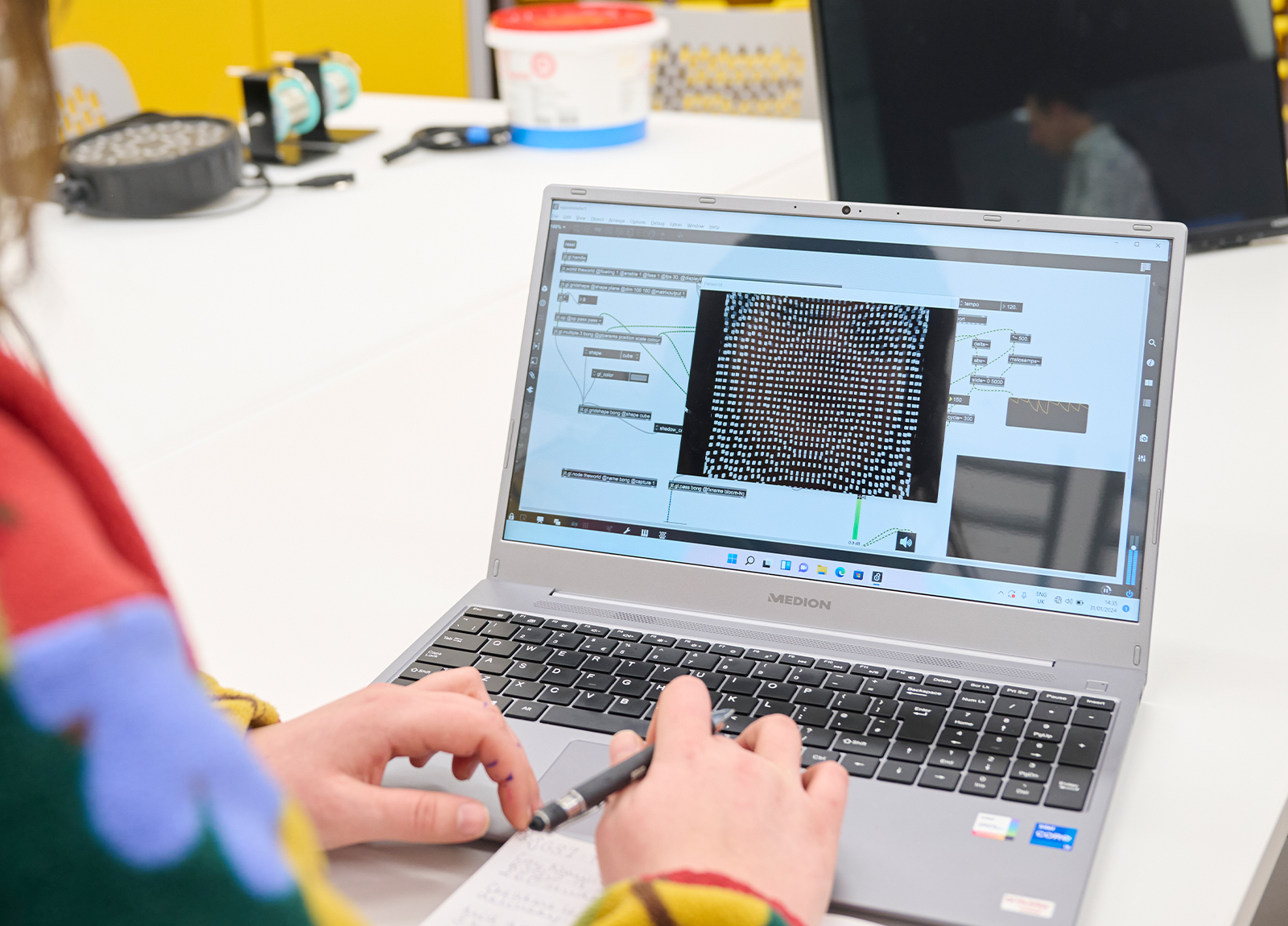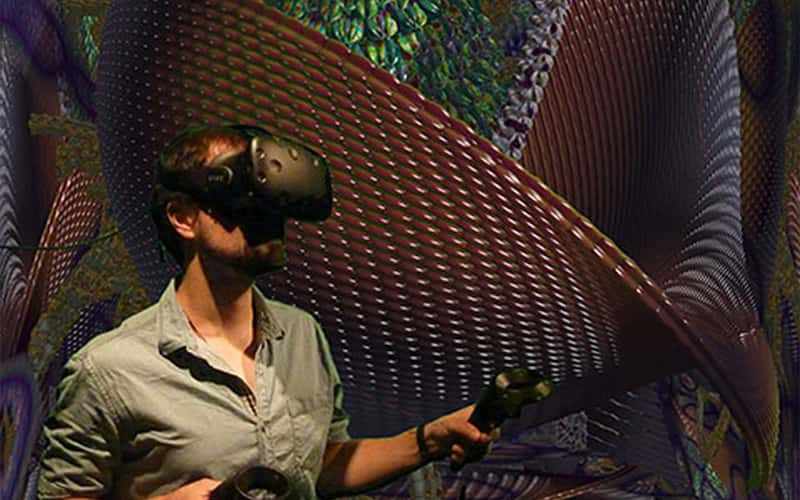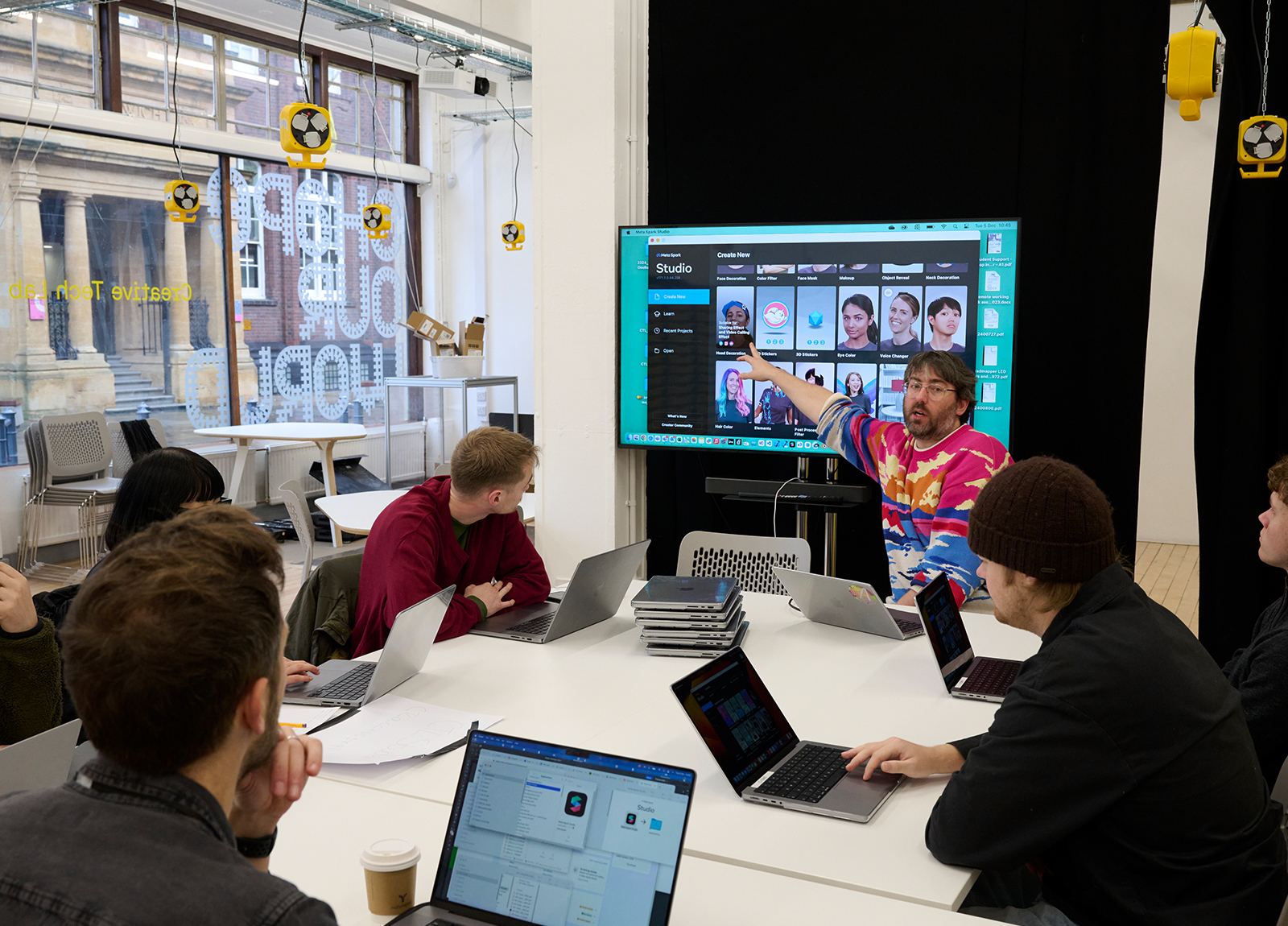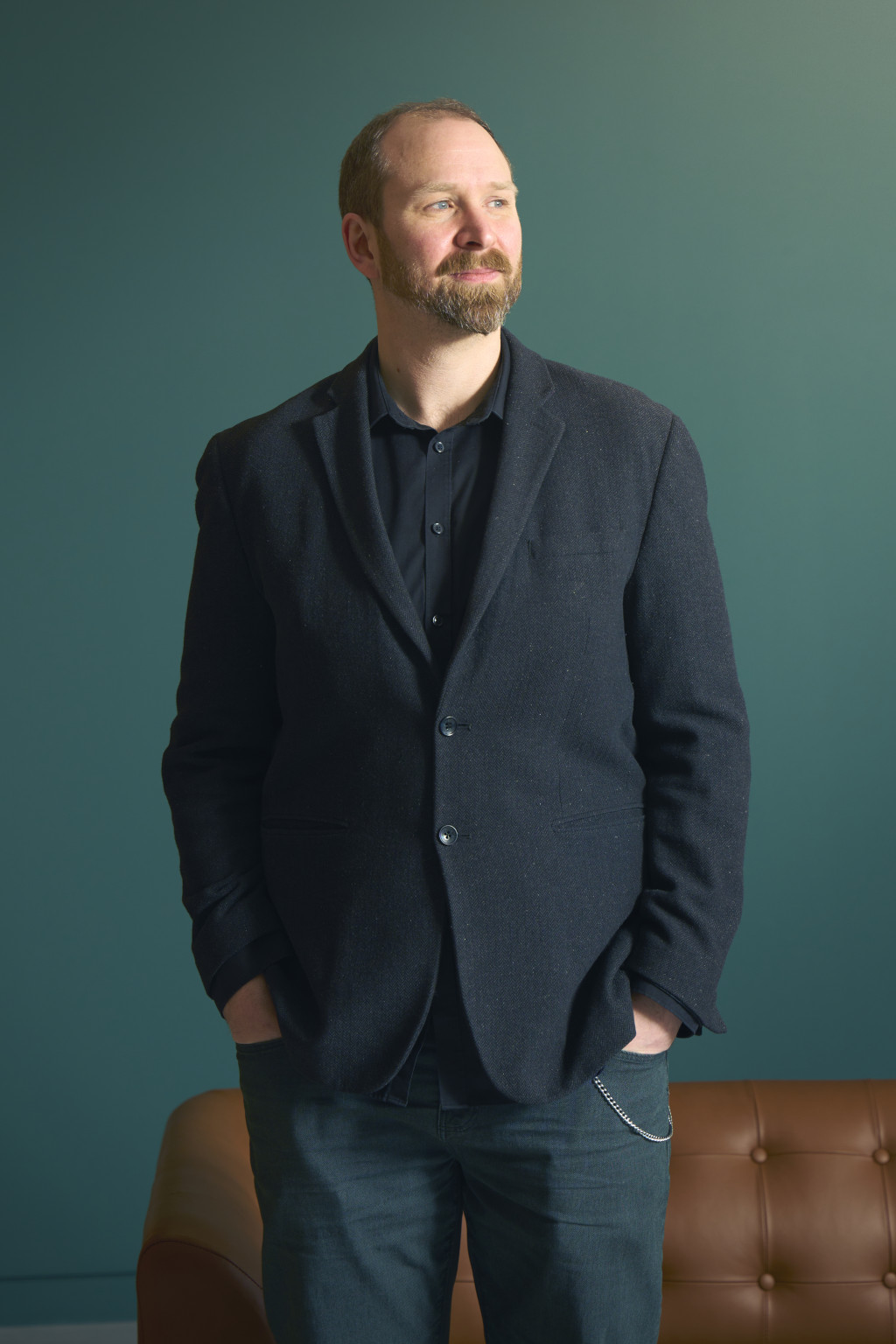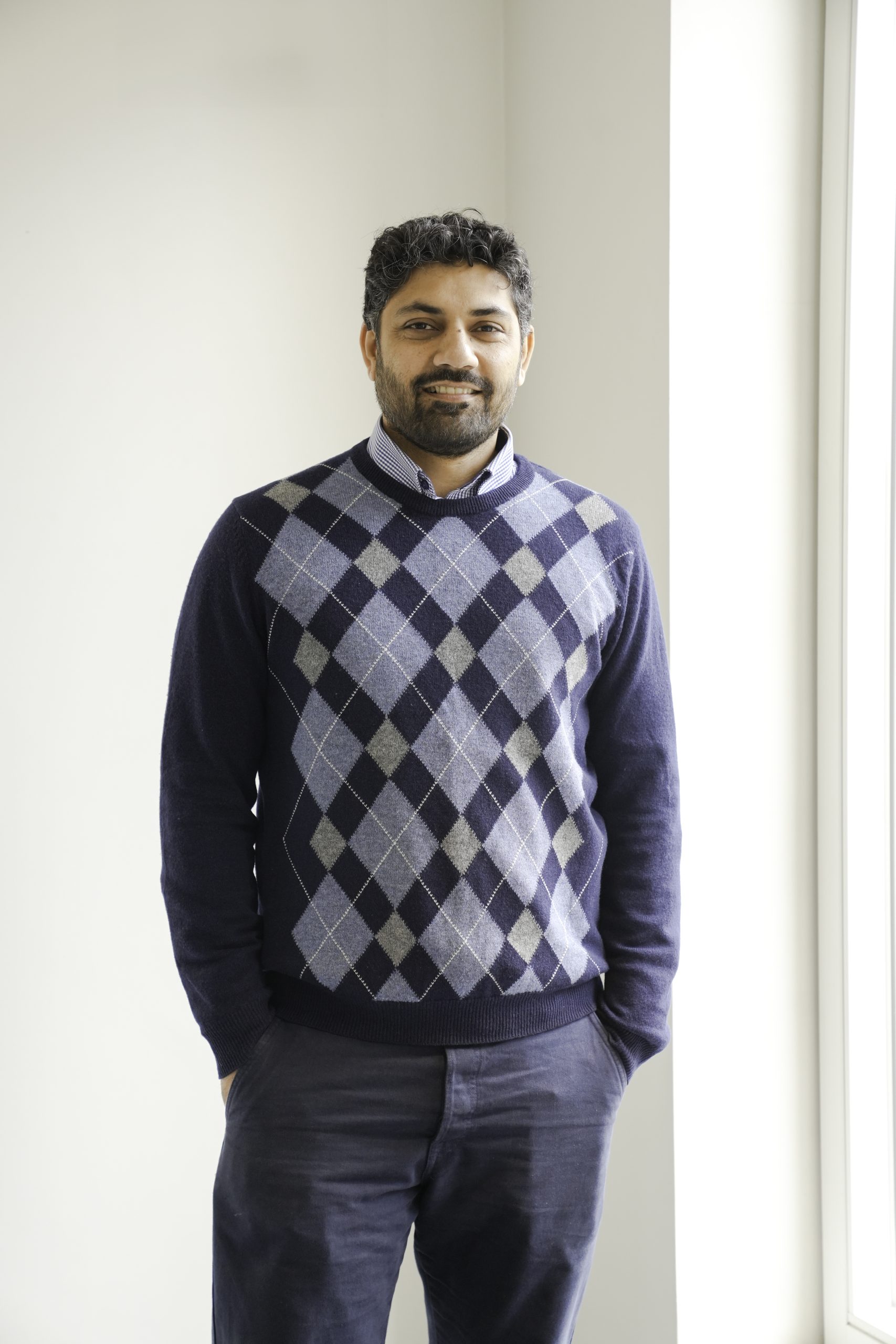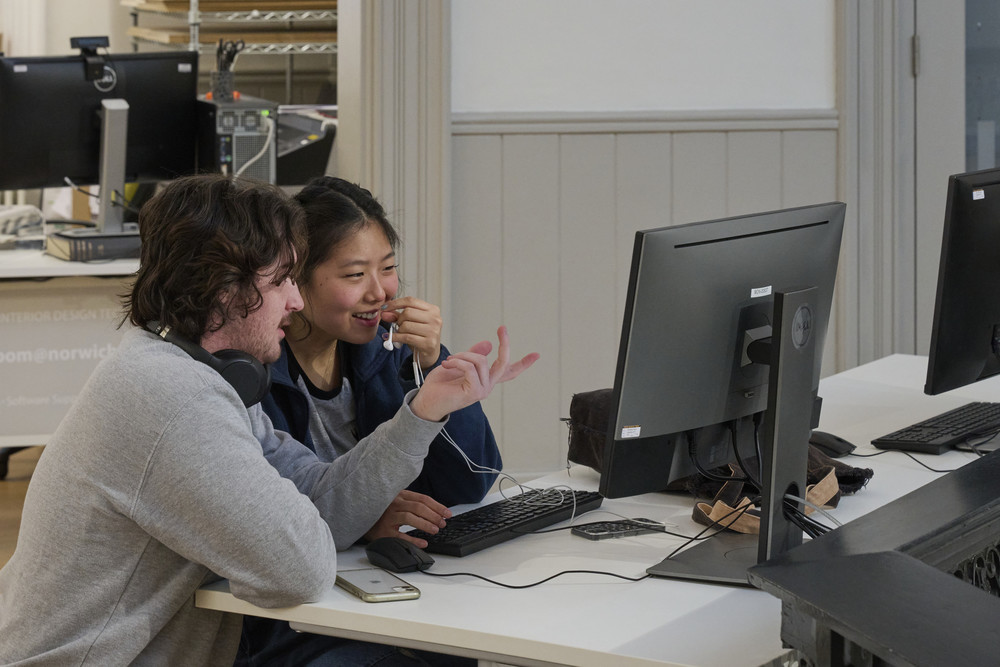
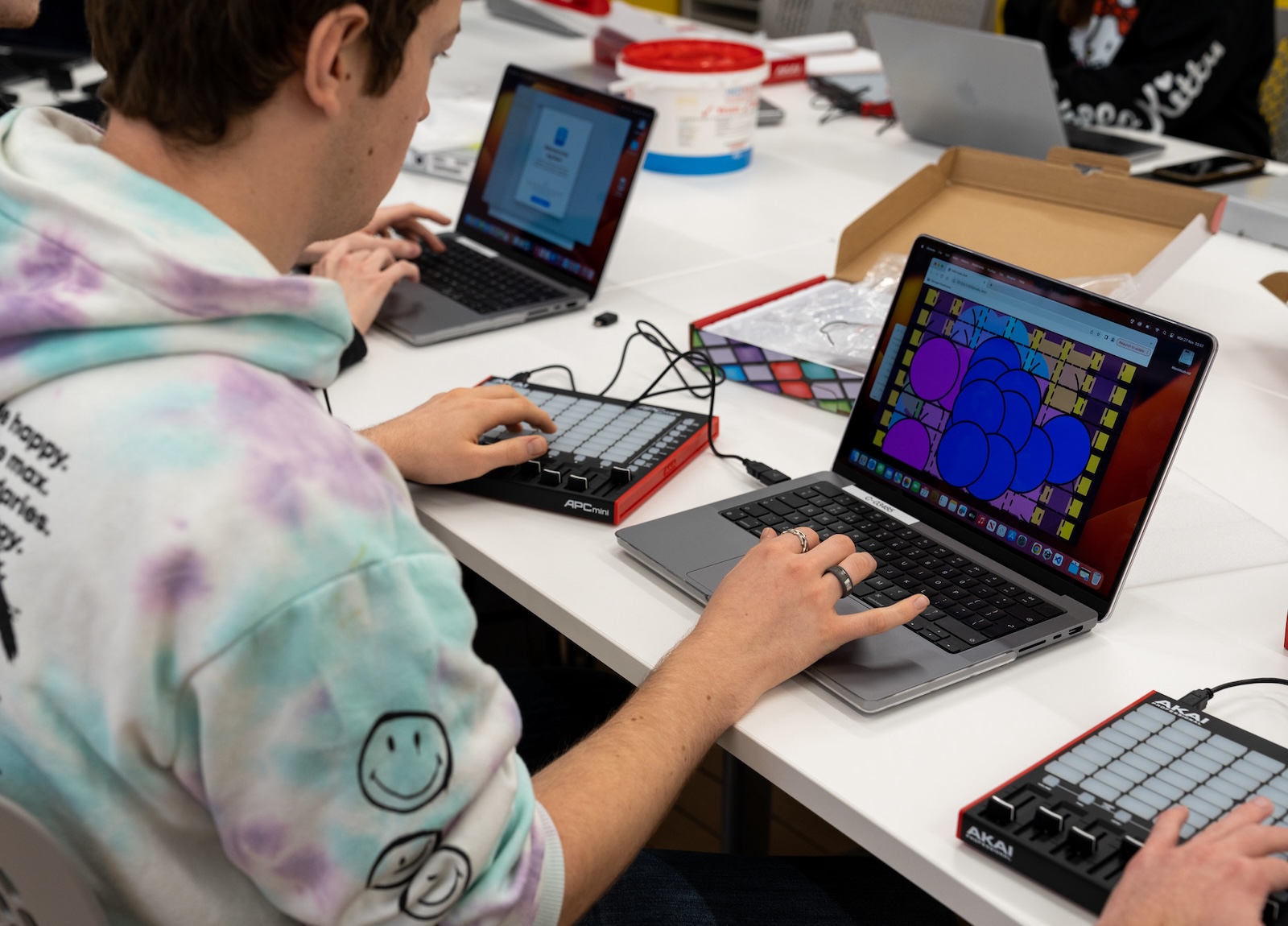
Computer Science BSc (Hons)
Study new systems, methodologies, and ways of thinking to solve real-world problems with our Computer Science BSc.
-
Course Duration
3 Years
-
Typical Offer
104-120 UCAS Tariff Points
-
Annual Fees
- Home (full-time) £9,790
- Overseas (full-time) £18,860
- How to Apply Request a prospectus
-
UCAS code
- CSC1
- Institution code: N39
-
Course Start
September 2026
Do you enjoy programming? Do you want to know how to talk to audiences to understand their needs, and be able to specify, design, build and test the software they want? If you do and want to learn about the fundamentals of computer science, software engineering, networks, and the latest trends in tech, our BSc (Hons) in Computer Science is for you.
From harnessing coding to exploring AI, web platforms, communication technology, and machine learning, you’ll acquire the knowledge and skills that top employers seek. We understand that theory alone won’t cut it in the real world, so this course prioritises practical hands-on experience through real-world projects and industry collaborations. Whether you aim to become a software engineer, a systems analyst, or a tech entrepreneur, our course offers the flexibility and support to match your career aspirations and passions.
Grounded in core principles and practical application, this course provides a solid foundation in communication technology and machine learning. The course has been developed with an iterative approach to study, where you will gain understanding and skill sets as you progress, acquiring rigorous grounding in essential concepts, theories, and hands-on practical know-how. Each of the projects is designed to develop problem-solving abilities, facilitating an ability to understand the fundamentals of how computers process, store, and retrieve data.
The hands-on nature of the course allows you to experiment with coding languages like Python, Java, or C++, while also learning about database management, web development and networked communications. As you progress, you will develop confidence in dealing with more complex aspects of the discipline, such as algorithms, software engineering, IDE development, AI, computer vision and real-time performance systems.
One of the distinguishing features of the course is the emphasis on collaborative and independent work. You will participate in team-based projects throughout the course, learning to solve real-world problems and develop software in group environments that mirror industry practices and processes. In your final year, you undertake an individual problem-based project, exercising your creativity and innovation to design and implement a software solution to the problem, applying scientific principles you have learnt.
Why study with us
-
Study fast-developing areas such as software engineering, concepts in artificial intelligence, networked communications, and cloud-based systems.
-
Learn the principles of computer science and how to apply them to problems across different industries and contexts.
-
Develop creativity and teamwork through project-based learning, working with your classmates to solve problems together, a core attribute highly valued by employers.
-
Excellent tutorial support and extensive course-specific interactive teaching in a friendly and supportive learning environment.
Course Details
Year 1
Core Units
Introduction to Studying Computer Science (40 credits)
This unit covers the fundamentals of computer science, including computational power and foundational concepts prepares students to innovate and adapt within the dynamic landscape of computer science. Blending theoretical learning with hands-on exploration, it explores the significance of computer science in shaping the modern world and initiates students into technical learning with high-level programming languages, such as JavaScript and Python, alongside fundamental mathematics relevant to computing. Students will engage with both the historical and cultural impacts of computer science throughout.
40 credits
Research Methods in Computer Science (40 credits)
This unit introduces key research methodologies in Computer Science and user research and user centred design, preparing you for advanced study and professional challenges in the field. It will develop your critical thinking, practical research skills, and ethical awareness. Real-world applications are explored through case studies, design simulations, and problem-based learning, allowing students to apply theoretical concepts to tangible issues. Technical learning includes web programming, building websites, and designing interfaces and interactions using HTML 5, CSS, and JavaScript.
40 credits
Concepts, Theories, and Practice in Computer Science (40 credits)
In this unit you will explore some of the key contemporary concepts within computer science. You will explore data security, trust, and network management in computational and networked environments. You will explore strategies for creating secure networks, including industry-standard protocols for firewall management, penetration testing, intrusion detection, data encryption, and Wi-Fi security. You will engage with full-stack development, incorporating both SQL and NoSQL databases. You will gain hands-on experience in data analysis for detecting security anomalies and understanding attack patterns, as well as ethical considerations around hacking tools and user privacy.
40 credits
Core Projects
Wayfinding Week
The first week of each academic year is called Wayfinding week. It’s an opportunity get your bearings, establish new connections and, after your first year at Norwich, re-establish old ones. Your course team will talk you through the year ahead and explain the expectations for the year. We’ll help you navigate new encounters and identify areas to focus on as you progress through your course.
Make it Manifest(o)
An important element of Wayfinding Week is taking part in our annual ‘Make it Manifest(o)’ project. Your course team will introduce the project in which we’ll ask you to consider your hopes and vision of the year ahead at Norwich and work with students in other year groups to bring your ideas to life. The project culminates in a celebratory display of work across the campus. The project will help you to develop your critical creativity through different approaches, concepts, and mediums. You’ll encounter diverse perspectives and build friendships and networks within our university community.
Interchange Week
Interchange weeks are opportunities to step away from your disciplinary studies and engage in projects, workshops, visits and talks that extend your knowledge and understanding of the world. Whether you learn a new skill or take part in a global challenge project with students from other courses, you will come away with new insights to take back to your course. Interchange is part of the schedule for all Norwich students with sessions held across and beyond the campus led by university staff, visiting lecturers and students.
Year 2
Core Units
Models, methods and practice in Computer Science (40 credits)
How do you develop high fidelity multimedia content across web platforms? This unit focuses on developing computational skills and methodologies for audio-visual media, emphasising design thinking, multimedia optimization, and introduces real-time rendering. You will engage in workshops applying HCI and UX principles, gaining experience in audio mixing, and machine learning theory, as well as essential multimedia practices. Design thinking sessions will develop both your divergent and convergent thinking, supporting iterative ideation and data-driven problem-solving approaches.
40 credits
Global Citizenship and Perspectives in Computer Science (40 credits)
How do we develop intelligent systems and what are the implications for society? This unit explores the ethical, social, and global challenges in Computer Science and Machine Learning, encouraging you to critically assess the implications of internationalization, localization, and the technical impact on sustainability. Technical learning will include developing machine learning systems and artificial intelligence, including neural networks, reinforcement learning and other specialist approaches. Through case studies and ethical frameworks like GDPR and AI ethics, you will gain practical knowledge of legal and moral standards shaping the industry. Awareness of unconscious bias, sustainable tech ecosystems, and ethical data handling are integral parts of our curriculum.
40 credits
Collaborative approaches to Computer Science (40 credits)
This unit ensures you understand best practice in current software development and are able to work in collaborative settings to create computer codes and systems to solve real world problems. This unit explores cross-disciplinary collaboration, encouraging creative risk-taking and the cross-fertilization of ideas and practices. Through workshops and seminars, you’ll develop skills in identifying productive collaborators, understanding audience and context, and applying effective ideation and problem-solving methodologies. Technical session cover Software Engineering principles and code repository management. Hands-on experience with Agile and Scrum methodologies, alongside hackathons, enables flexible, team-oriented development practice, preparing you for dynamic, collaborative work environments.
40 credits
Core Projects
Wayfinding Week
The first week of each academic year is called Wayfinding week. It’s an opportunity get your bearings, establish new connections and, after your first year at Norwich, re-establish old ones. Your course team will talk you through the year ahead and explain the expectations for the year. We’ll help you navigate new encounters and identify areas to focus on as you progress through your course.
Make it Manifest(o)
The first week of each academic year is called Wayfinding week. It’s an opportunity get your bearings, establish new connections and, after your first year at Norwich, re-establish old ones. Your course team will talk you through the year ahead and explain the expectations for the year. We’ll help you navigate new encounters and identify areas to focus on as you progress through your course.
Interchange Week
Interchange weeks are opportunities to step away from your disciplinary studies and engage in projects, workshops, visits and talks that extend your knowledge and understanding of the world. Whether you learn a new skill or take part in a global challenge project with students from other courses, you will come away with new insights to take back to your course. Interchange is part of the schedule for all Norwich students with sessions held across and beyond the campus led by university staff, visiting lecturers and students.
Diploma Year (optional)
Level 5 Diploma (120 credits)
Students have the opportunity to spend a year after the second of their degree (or the third year if studying for a degree with an Integrated Foundation Year) enhancing their employability options through a Level 5 Diploma. They can choose from courses designed to provide:
- opportunities to gain industry insight, developing employability skills through a series of supported experiences, expanding professional networks and building confidence in the workplace, or
- an introduction to creative computing, building an understanding of how coding skills can be used to advance and complement creative practice.
Final year
Core Units
Professional Development in Computer Science (40 credits)
This unit provides a practical understanding of how to develop and deploy systems with leading approaches to cybersecurity. It provides the organisational context to know how this supports critical business needs. Students will gain hands-on experience through cybersecurity hackathons, penetration testing, ethical hacking, and secure deployment using cloud platforms. Exploring roles such as SOC Analyst, Threat Intelligence Analyst, and AI/ML Engineer, you’ll map career paths and essential skills needed across the field. In this unit, you also reflect on your personal future career and identify key skills for roles and sectors you intend to work in upon graduation, including start-up culture. Workshops cover postgraduate study options, freelance project management, and the legal and financial aspects of tech startups, alongside best practices in independent working strategies.
40 credits
Advanced research and project design for Computer Science (40 credits)
In this unit, you will develop real-time systems that leverage computer vision, gaining insight into how cutting-edge research in these areas is conducted. Alongside technical learning in computer vision and real-time performance systems, the unit examines the intersection of ethics, technology, and innovation, equipping you to navigate complex ethical dilemmas in tech. Through case studies in real-time decision-making, you’ll explore the balance between innovation and ethics, addressing issues such as bias, user safety, privacy, accountability, and transparency. You will explore critical areas of post-humanism and the evolving boundaries between humans and machines to understand technology’s impact on society. You will also learn the essentials of crafting a research proposal, from identifying research problems to defining objectives and methodologies, ensuring readiness for academic and professional advancements in the field.
40 credits
Major Project in Computer Science (40 credits)
What project will you show future collaborators and/or employers to showcase your computing skills? Your Computer Science Project is a chance to combine the knowledge and skills you have gained throughout your degree. Project work consists of independent study, guided by regular meetings with a member of staff who will advise you on how to proceed with the year’s work. You may choose a project title and subject area from a large list of project descriptions or suggest your project for possible approval to aid your graduate progression.
40 credits
Core Projects
Wayfinding Week
The first week of each academic year is called Wayfinding week. It’s an opportunity get your bearings, establish new connections and, after your first year at Norwich, re-establish old ones. Your course team will talk you through the year ahead and explain the expectations for the year. We’ll help you navigate new encounters and identify areas to focus on as you progress through your course.
Make it Manifest(o)
An important element of Wayfinding Week is taking part in our annual ‘Make it Manifest(o)’ project. Your course team will introduce the project in which we’ll ask you to consider your hopes and vision of the year ahead at Norwich and work with students in other year groups to bring your ideas to life. The project culminates in a celebratory display of work across the campus. The project will help you to develop your critical creativity through different approaches, concepts, and mediums. You’ll encounter diverse perspectives and build friendships and networks within our university community.
Interchange Week
Interchange weeks are opportunities to step away from your disciplinary studies and engage in projects, workshops, visits and talks that extend your knowledge and understanding of the world. Whether you learn a new skill or take part in a global challenge project with students from other courses, you will come away with new insights to take back to your course. Interchange is part of the schedule for all Norwich students with sessions held across and beyond the campus led by university staff, visiting lecturers and students.
Learning and teaching
This course is taught through a mixture of learning and teaching methods including:
-
Group briefings
-
Academic tutorials
-
Group tutorials
-
Workshops
-
Critiques (crits)
-
Seminars
-
Lectures
Assessment
Assessment for this course is entirely coursework-based, meaning there are no exams. Your progress will be evaluated through the projects and assignments you complete for each unit. Throughout the year, you’ll receive ongoing feedback to help you refine your work and develop your skills. To support your learning and ensure you achieve the course outcomes, we use a variety of assessment methods, including:
- Finished pieces of work
- Presentations
- Written work
- Your research
- A reflective journal
Some of the people you’ll be working with
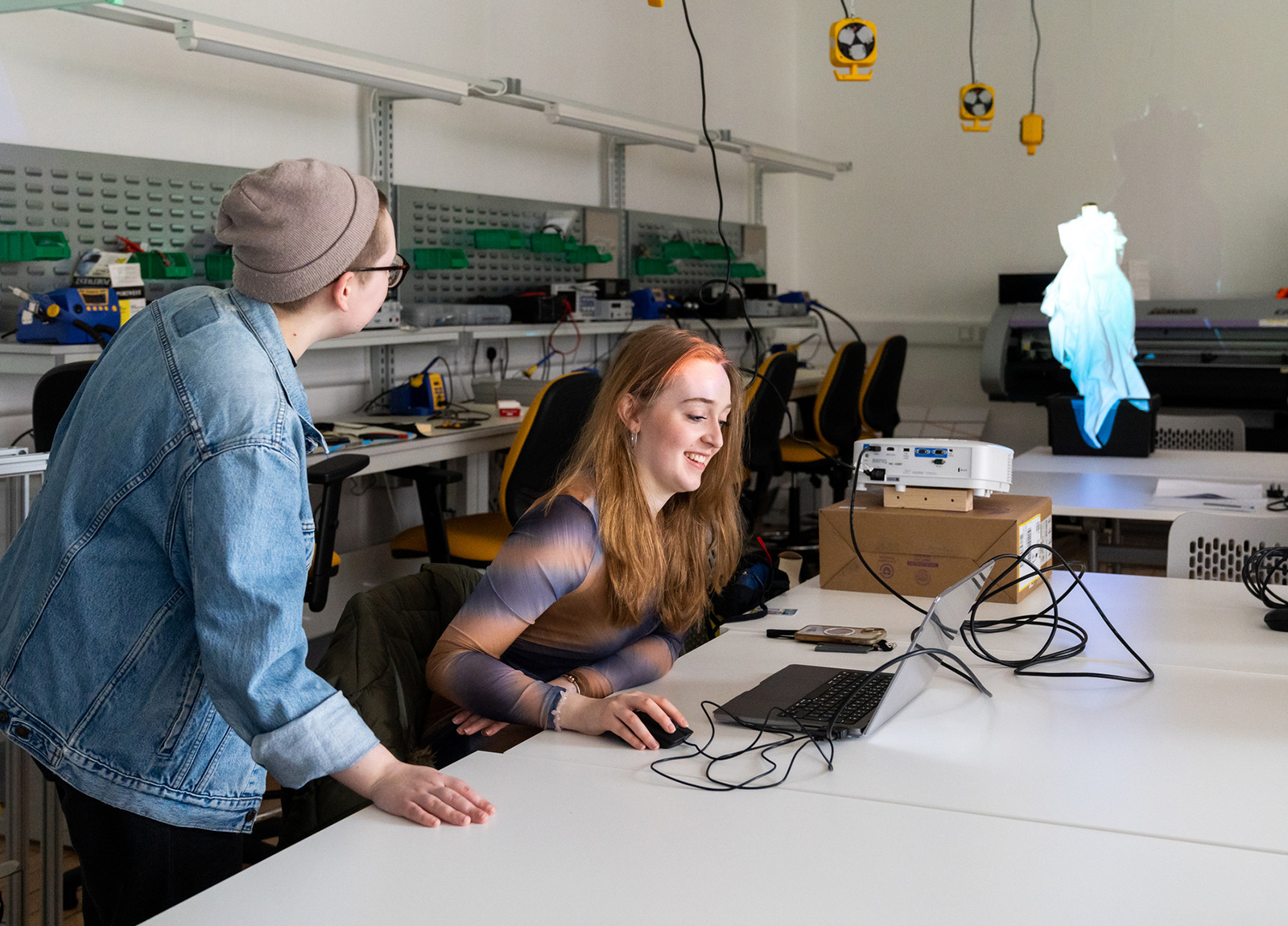
Typical career paths
Our degrees facilitate progression into a wide range of careers in both industry and academia. Computing graduates are in high demand across many sectors including hospitality, banking, travel, retail, manufacturing, public sector, and the media.
- AI engineer
- Business analyst
- Cyber security specialists
- Data analyst
- Forensic computer analyst
- Network engineer
- Secondary school teacher
- Software engineer
- Systems designer
- Systems engineer
- Web developer
“92% of our graduates are in employment or further education within six months of graduating”
Graduate Outcomes 2021
Entry requirements
Home
Norwich University of the Arts welcomes applicants of all ages from all backgrounds.
If the qualification that you are studying is not shown, do not worry as we are able to accept other pre-entry qualifications as well as combinations of different qualifications.
A/AS Levels (GCE)
GCE A/AS Levels 3 A-level qualifications at grades BCC (104 UCAS Tariff points) or above. Where candidates are not taking 3 A-levels, Norwich University of the Arts will consider combinations of A-level/AS-level and other Level 3 qualifications.
BTEC Extended Diploma (QCF or RQF)
Distinction, Merit, Merit in an art, design or media related subject
BTEC Diploma (QCF or RQF)
Distinction*, Distinction* in an art, design or media related subject
T Levels
A T Level in any subject with overall grade A* to C (Pass)
UAL Extended Diploma
Merit
UAL Level 3 Foundation Diploma in Art and Design
Pass
UAL Level 4 Foundation Diploma in Art and Design
Pass
Foundation Diploma in Art and Design
Pass
Access to Higher Education Diploma (Art and Design)
Pass
International Baccalaureate Diploma
A minimum of 26 points
Overseas
We accept qualifications from all over the world.
To find our entry requirements from a specific country, please check our dedicated international pages.
English language qualifications
Most international students are required to hold an English language qualification. Applicants are required to have a minimum UKVI approved IELTS exam score of 6.0 overall, with a minimum of 5.5 in each section. Equivalent English language qualifications are acceptable such as, IB English language syllabus A or B/English Literature (Grade 4).
We also accept some alternative English qualifications. Learn more about our English entry requirements.
You can email us on international@norwichuni.ac.uk if you’d like to discuss your application individually.
Additional requirements for this course
GCSE in English and Maths at Grade 4 or above
If you do not have a Science or Mathematics-based A-level, you should have at least Grade B/Grade 5 at GCSE Mathematics.
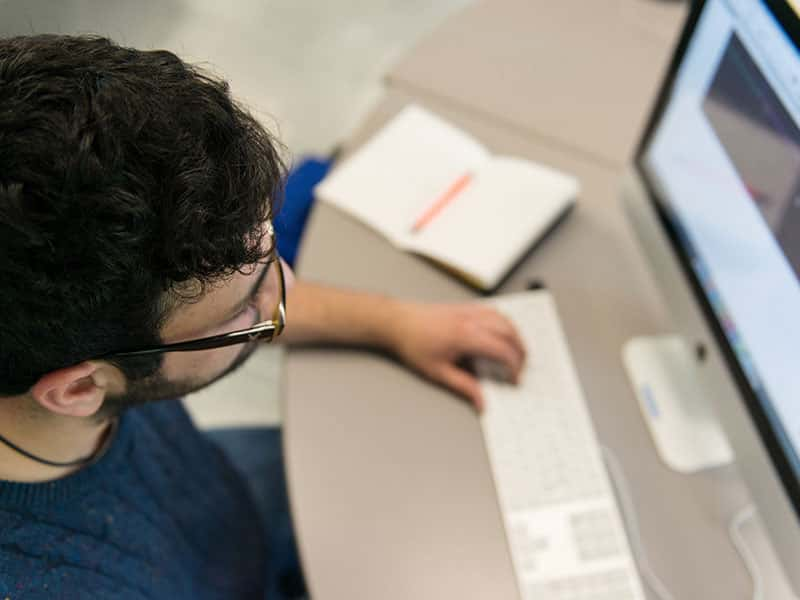
Fees and funding
Home
Tuition fees for the 2026/27 academic year
- BA course (three year): £9,790 per year
- Integrated Foundation Year (optional): £9,790 per year
- Level 5 Diploma Year (optional): £9,790 year
The level of fee that you will be asked to pay depends on whether you’re classed as a UK (home) or international student. Check your fee status.
Fees for subsequent years
Tuition fees may increase in subsequent years in line with inflation, subject to government regulations. The inflation rate used is expected to be the Retail Price Index excluding mortgage payments (RPIX). We would confirm this in advance to you of each academic year.
Find our more about fees and funding
Funding your study
Depending on your circumstances, you may qualify for a bursary, scholarship or loan to help fund your study and enhance your learning experience.
International
Tuition fees for the 2026/27 academic year
- BA course (three year): £18,860
- Integrated Foundation Year (optional): £18,860
- level 5 Diploma year (optional): £18,860
The level of fee that you will be asked to pay depends on whether you’re classed as a UK (home) or international student. Check your fee status.
Fees for subsequent years
For Overseas students starting in 2026 inflation will be applied to your fees in later years. We will confirm this in advance to you of each academic year, and we will limit the increase to no more than the Office for Students’ recommended inflationary measure.
Find our more about fees and funding
Funding your study
Please take a look at our International students page for information about fees, scholarships for international students, visas and much more.
Additional costs
Your course fees cover the cost of studies, and include loads of benefits, such as the use of our library, support from our expert employability team, access to workshops and free use of the IT equipment across our campuses. There are also other costs which you may need to consider.
How to apply
Home
All applications for undergraduate courses will need to be made via the Universities and Colleges Admissions Service (UCAS).
You’ll need our university UCAS code (N39) as well as your course code which you’ll find on your course page.
When you register with UCAS you will need include your previous and current qualifications information, personal statement, and reference.
Once we receive your application form through UCAS, we will email confirmation that we have received it and will give you access and instructions for logging into the applicant portal. Our decision will be communicated via UCAS.
Applying for an undergraduate degreeInternational
Full-time Undergraduate International applicants can either apply via UCAS or directly by completing the online application form below or emailing the downloadable form to ioadmissions@norwichuni.ac.uk
Online Application Form (opens in a new window)For further support for international applicants applying for an undergraduate degree view our international pages.

Latest news
-
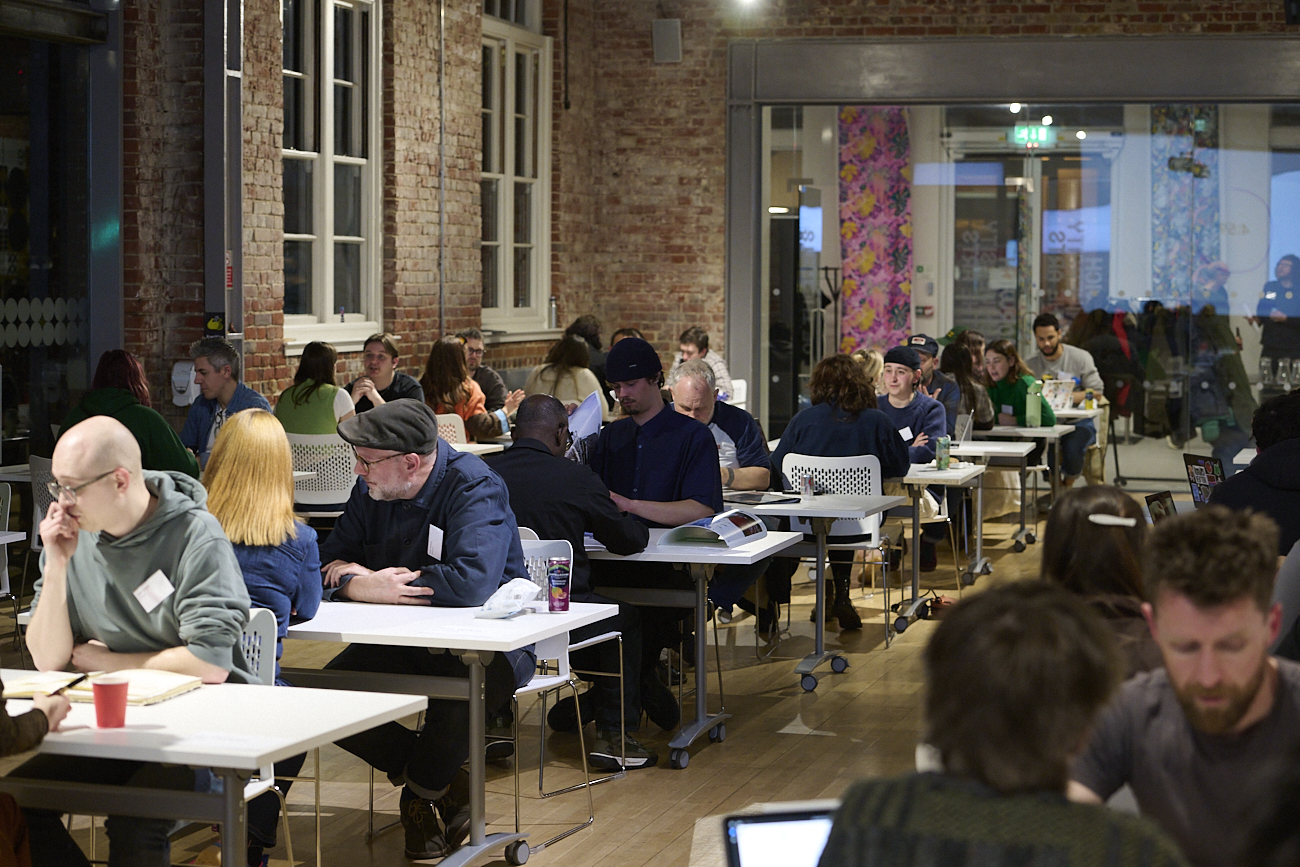 Employability •
Employability •Norwich University of the Arts celebrates 10 years of the Big Book Crit
Hundreds of Norwich students have shared their work with leading creative professionals over the last decade. -
 East Gallery •
East Gallery •Announcing the East Gallery Fellows 2025-2026
Norwich University of the Arts is pleased to announce the selected awardees of this year's East Gallery Fellowship. -
 BA Business Management •
BA Business Management •Dean of Creative Education Awarded Prestigious Principal Fellowship from Advance HE
The University is delighted to announce that Hilary Carlisle, Dean of Creative Education and Professor of Design, has been awarded Principal Fellowship of the Higher Education Academy (PFHEA) by Advance HE -
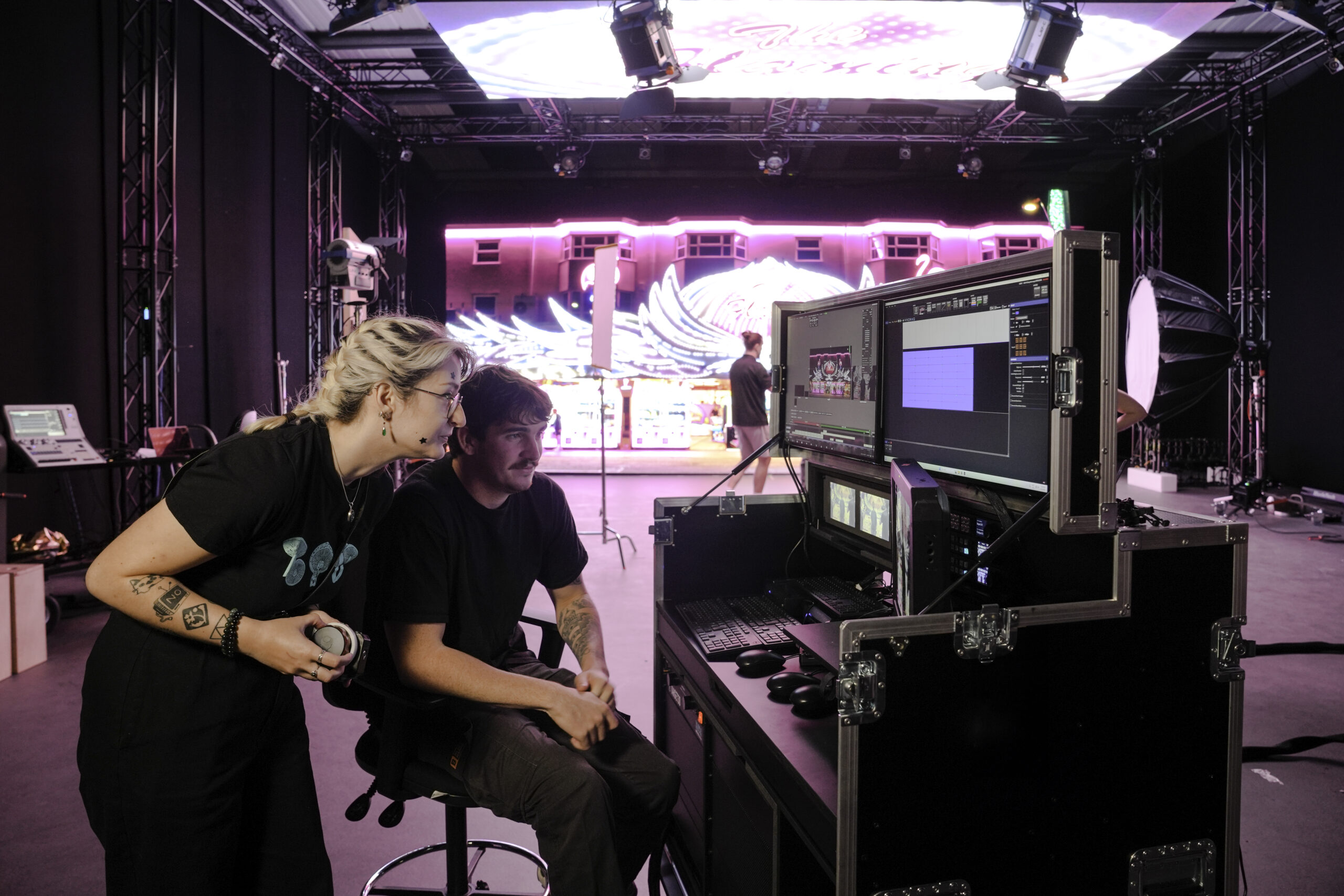 BA Degree •
BA Degree •Norwich University of the Arts to Host ELIA Academy 2027
Norwich University of the Arts is delighted to announce that it has been selected as the host institution for the ELIA Academy 2027. -
 BA Business Management •
BA Business Management •In conversation with Norwich’s newest lecturers in Marketing and Business Management
We joined Norwich's newest lecturers, Stephen Balmer-Walters and Laurie McAllister, to find out more about the University's Marketing and Business Management courses. -
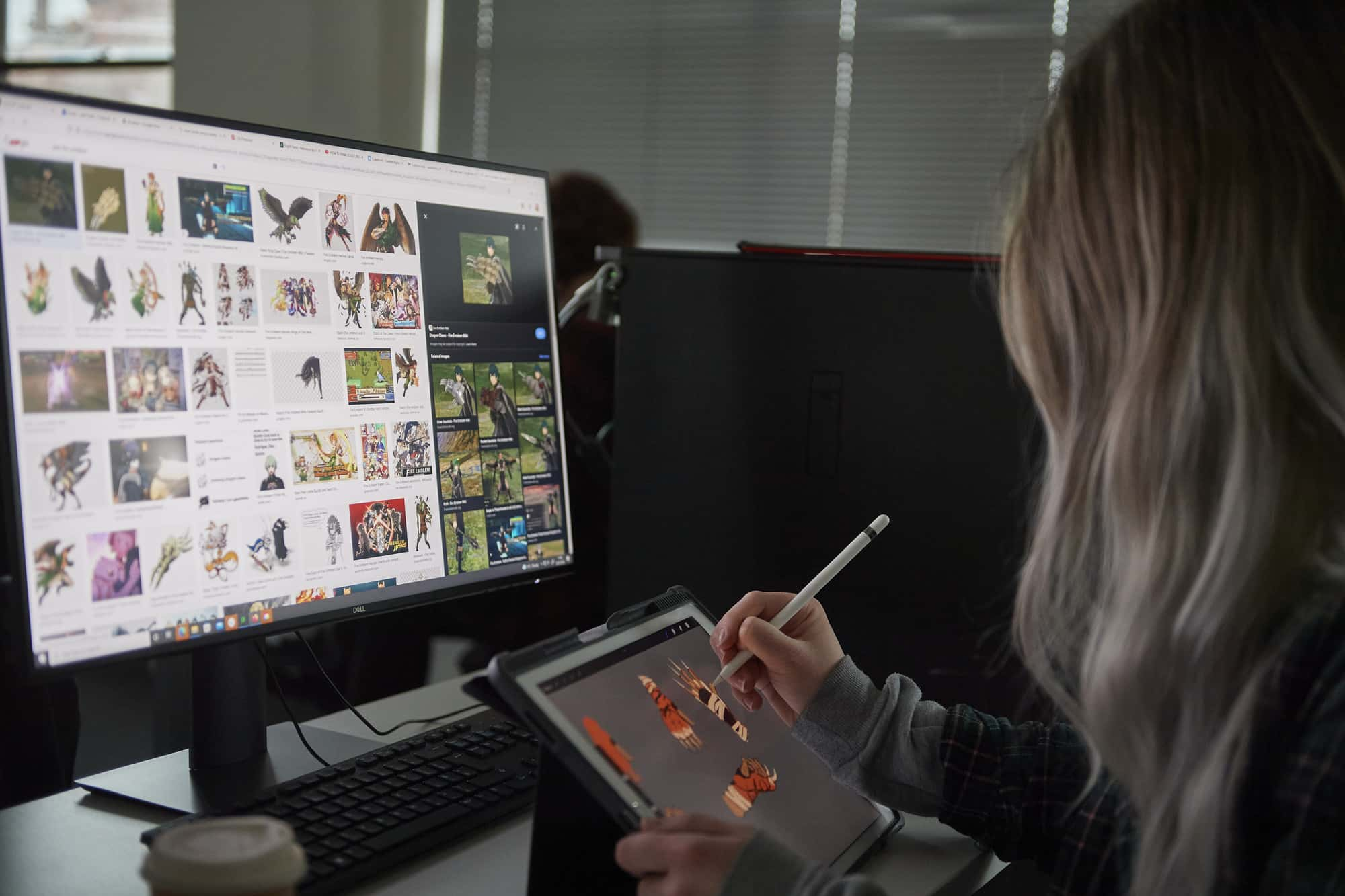 BA Games Art and Design •
BA Games Art and Design •East of England set to become UK’s next Games Cluster, says landmark report
A major new report is calling for the creation of a Games Cluster for the East of England — positioning the region as a national leader in creative technology and immersive media. -
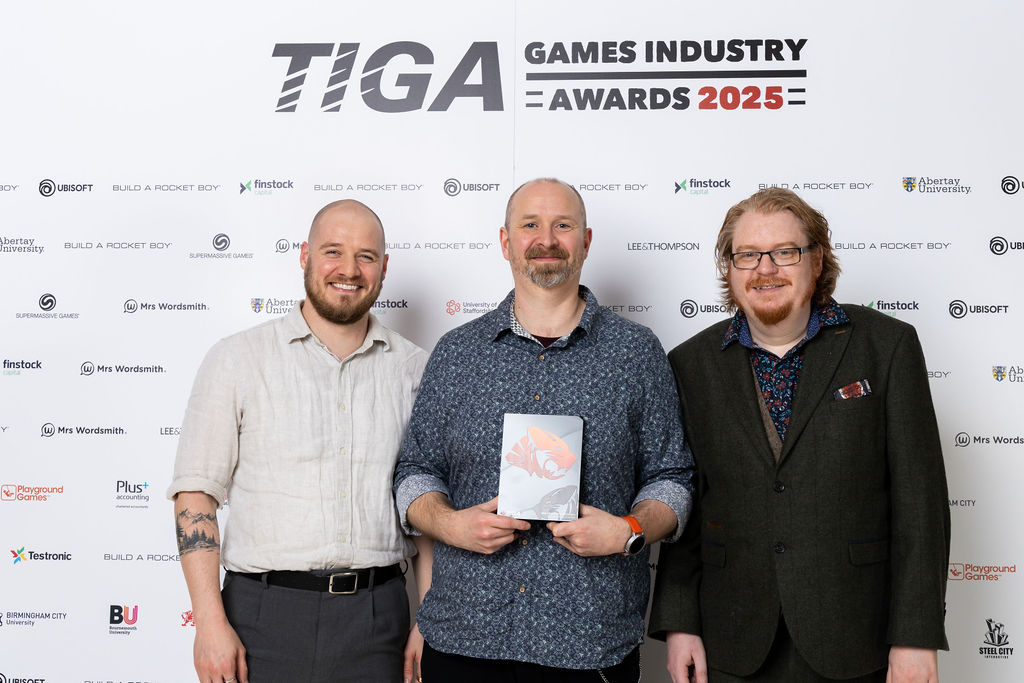 BA Games Art and Design •
BA Games Art and Design •Norwich awarded Best Education Initiative at the TIGA UK Games Industry Awards
TIGA, who represent the UK video games industry, have recognised the University’s commitment to graduate success and industry-focused learning in their 2025 awards. -
 BA Animation •
BA Animation •Cutting edge Sony Virtual Production Studio puts Norwich on the map for the future of film and gaming
Norwich University of the Arts and Sony open new landmark facility for students, creators and the community. -
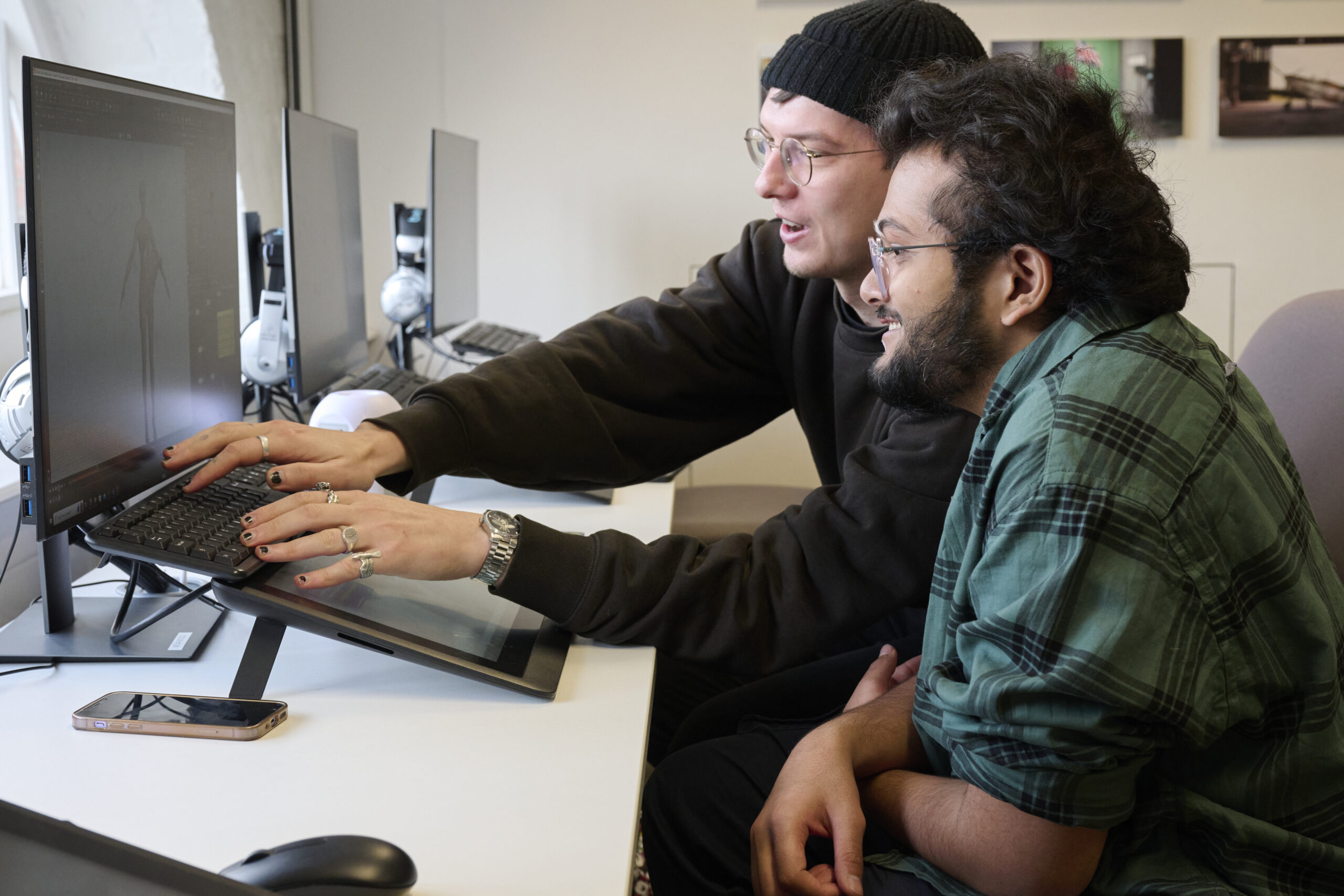 BA Animation •
BA Animation •Norwich named top UK university for production excellence in visual effects
The University has been placed in three categories in the 2025 Rookies Global School Rankings, including the top five for Production Excellence – Visual Effects. -
 BA Photography •
BA Photography •Entries open for Norwich's 2026 Beyond the Frame photography competition
Entries are now open for our annual photography competition, open to students aged 11 to 19 around the world. -
 BSc Degree •
BSc Degree •Norwich University welcomes new academics to its Psychology and Computer Science courses
Lyndsey Wallace joins the University as Senior Lecturer for BSc (Hons) Psychology, with Jawwad Chattha joining as Course Leader for BSc (Hons) Computer Science. -
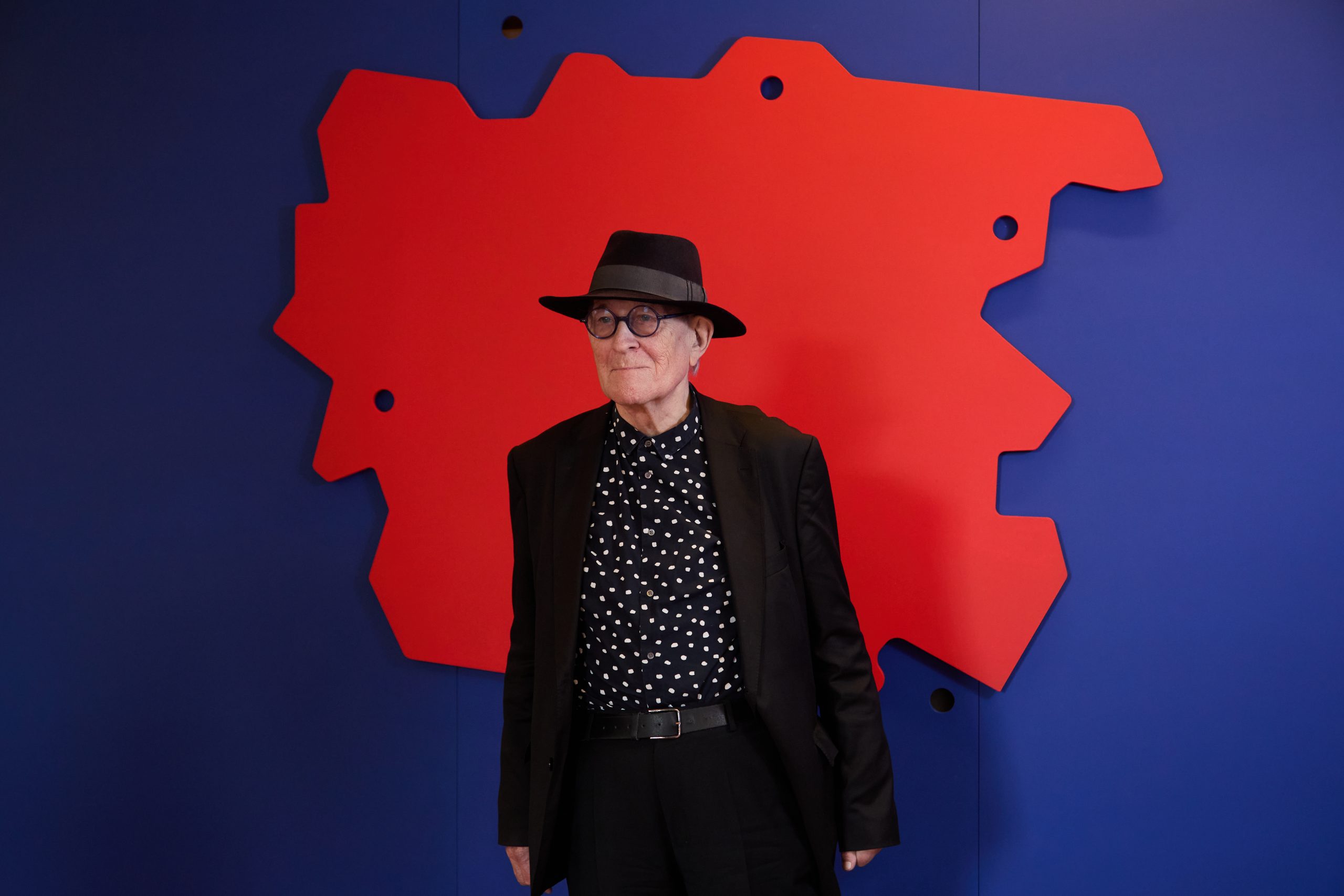 BA Architecture •
BA Architecture •Norwich University of the Arts presents the Peter Cook: Wonder Hub
Norwich University has launched the Peter Cook: Wonder Hub, a vibrant and interactive space for thinking, making, showcasing and debating the creative arts. -
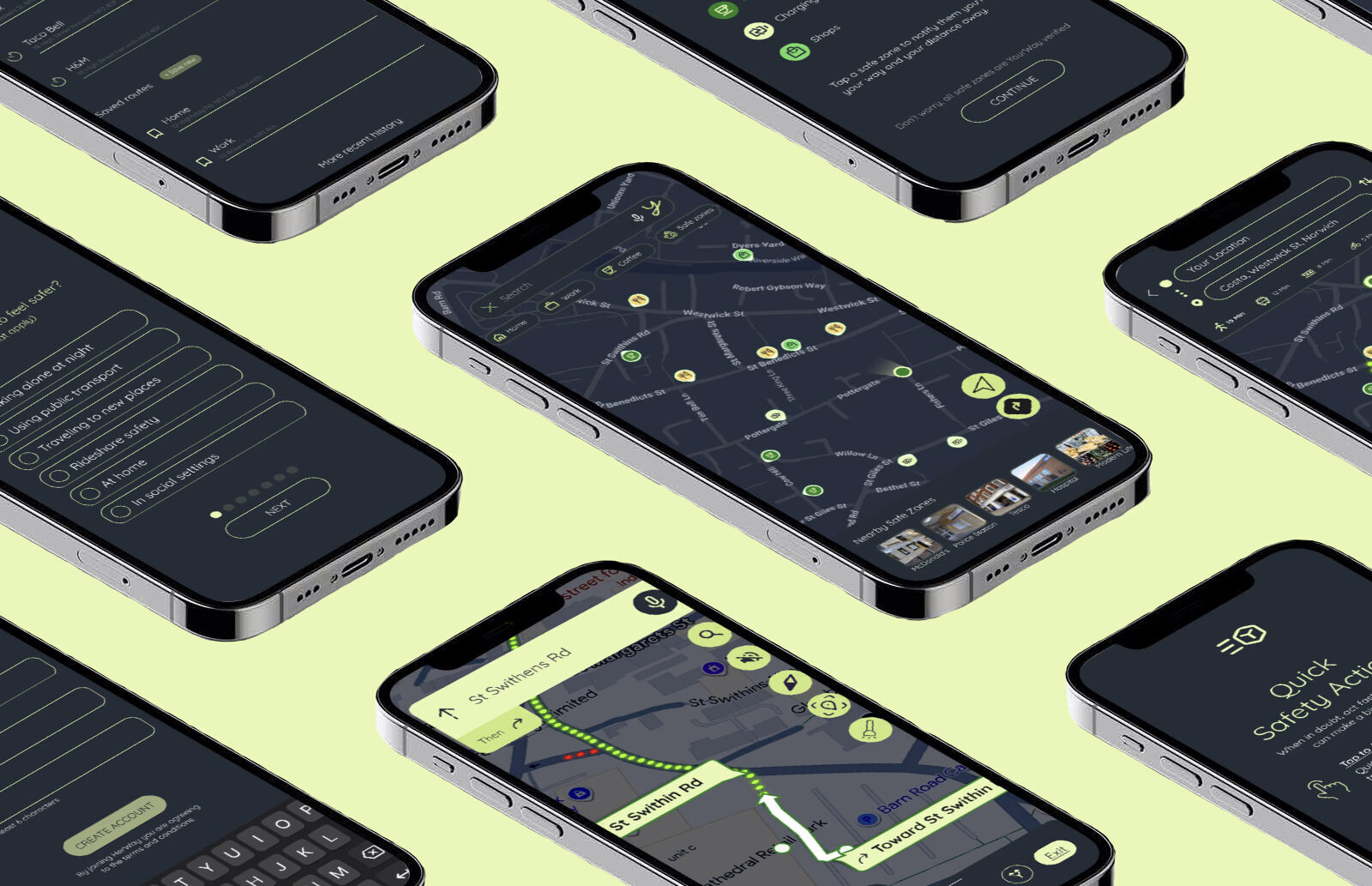 BA Graphic Communication •
BA Graphic Communication •Norwich students celebrate success at 2025 Creative Conscience Awards
Students from Norwich University of the Arts have been recognised across categories in this year’s awards, which showcase work focusing on social or environmental impact -
 BA Games Art and Design •
BA Games Art and Design •Norwich graduates recognised at TIGA UK Games Education Awards
Charlie O'Shea, BA (Hons) Games Art and Design has been named 'Outstanding TIGA Graduate of the Year: Designer' -
 BA Film and Moving Image Production •
BA Film and Moving Image Production •Dear future international students – Diya Vaya, BA (Hons) Film and Moving Image Production
Diya writes about the experience of moving to Norwich from Nairobi, and her advice to future international students. -
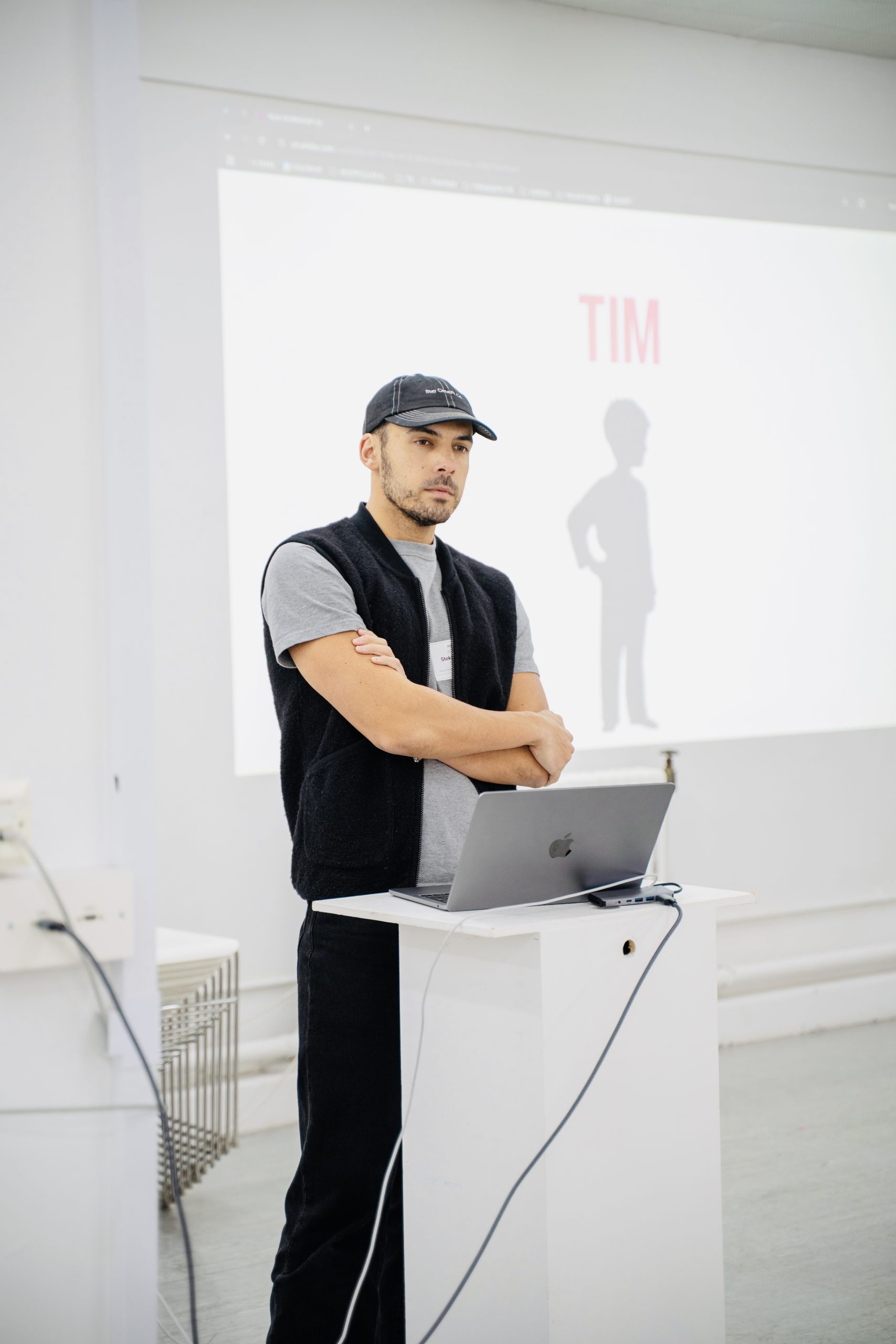 Course •
Course •Inside Interchange Week with Stokely Howard of Trendy Grandad
Stokely Howard, Co-Founder and Creative Director of video production company Trendy Grandad, shares his reflections on Norwich’s cross-course collaboration week.
Related courses
Discover our courses and take the first step towards unleashing your potential
-
Visit the Creative Computing BSc (Hons) course page
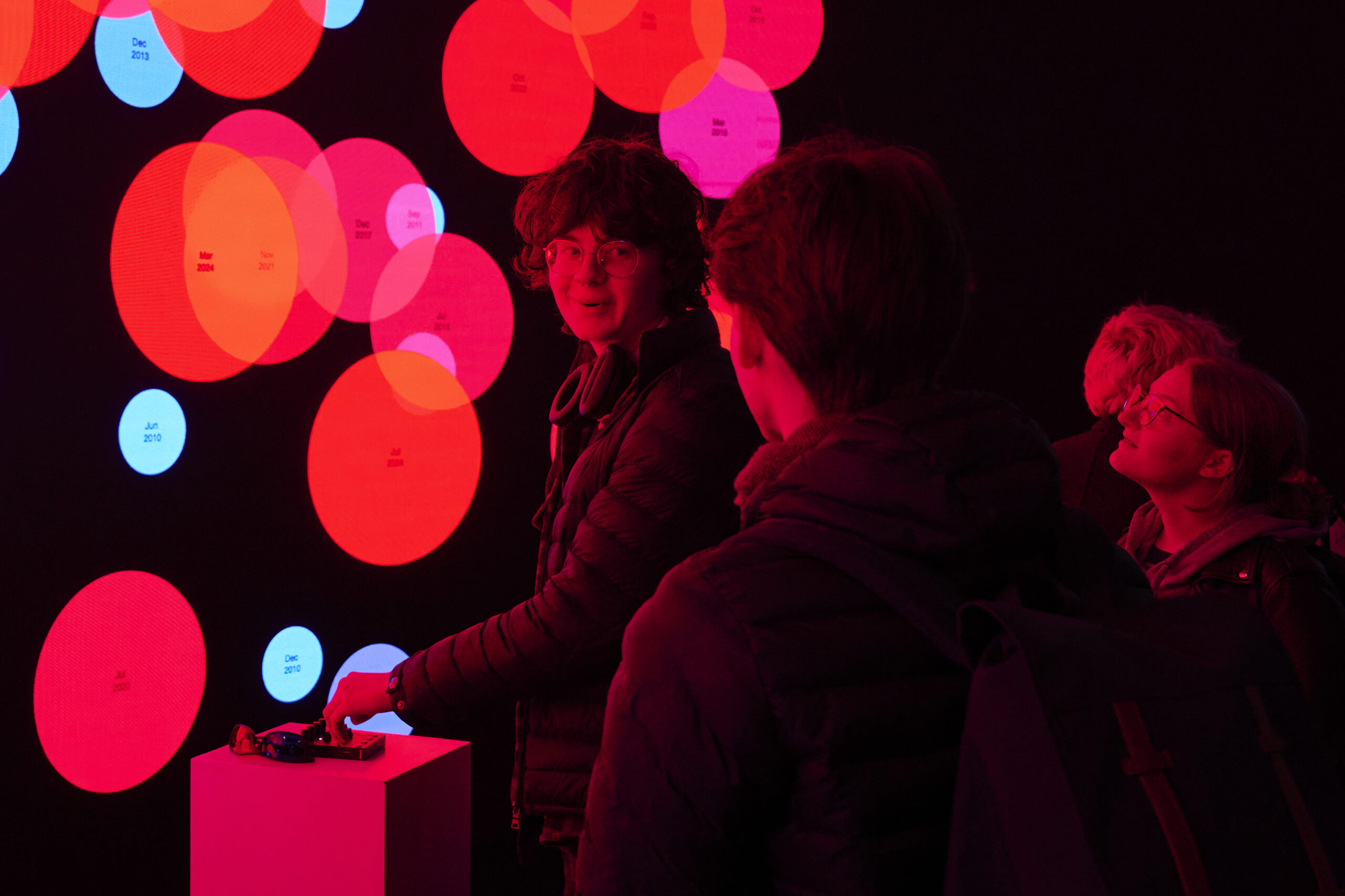
- Filter courses by study level: Undergraduate
- Filter courses by duration: Full time
- Filter courses by start month: September
- Filter courses by subject: Creative Computing
Creative Computing BSc (Hons)
Be part of the Future. Take your digital creativity to a whole new level and equip yourself with the skills needed for a career in the creative tech and digital arts industries.
-
Visit the Creative Computing MSc course page
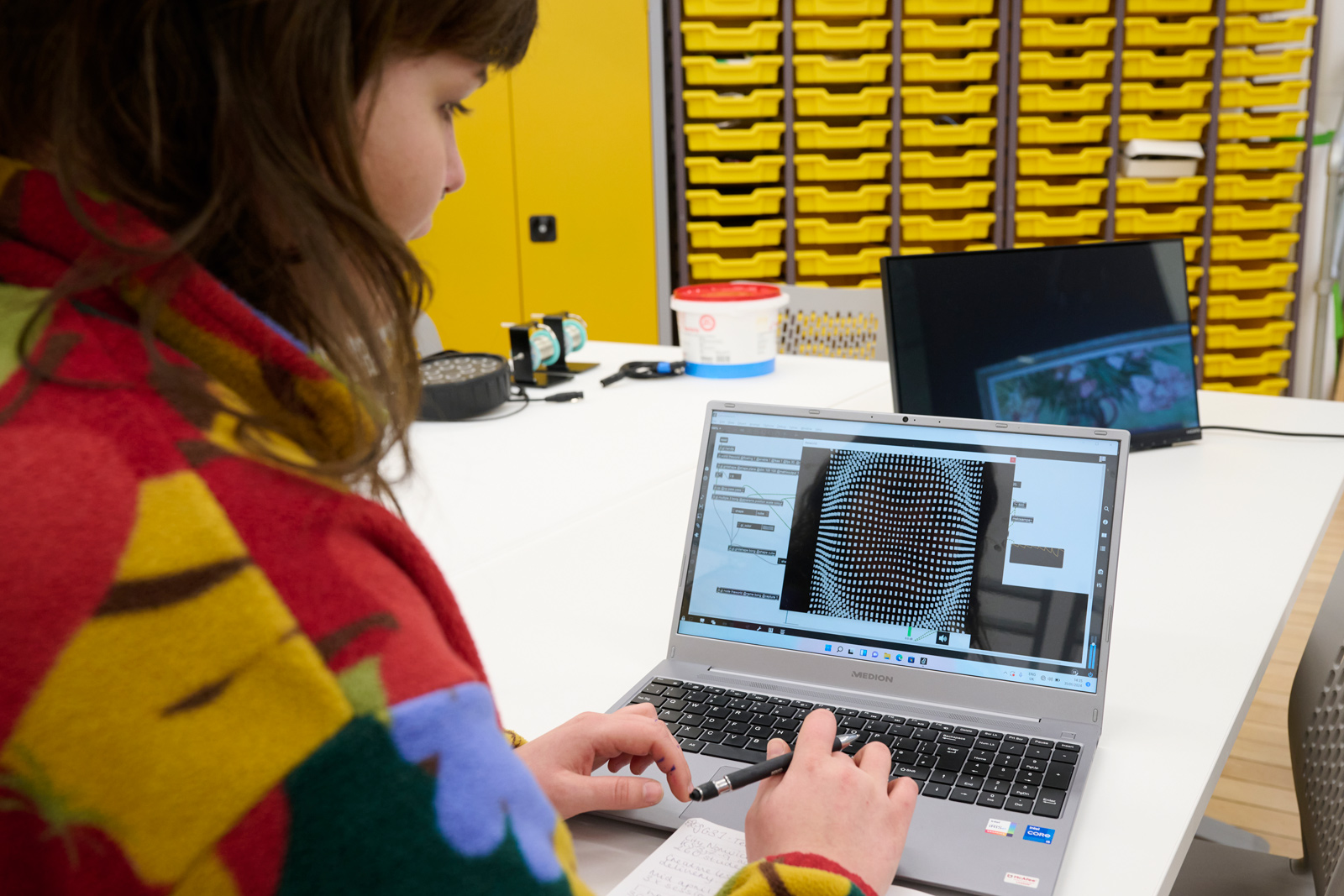
- Filter courses by study level: Postgraduate
- Filter courses by duration: Full time
- Filter courses by start month: September
- Filter courses by subject: Creative Computing
Creative Computing MSc
Discover how to use advanced programming and creative practice to design interactive experiences that push the boundaries of digital creativity.
-
Visit the Creative Technology and Robotics BSc (Hons) course page
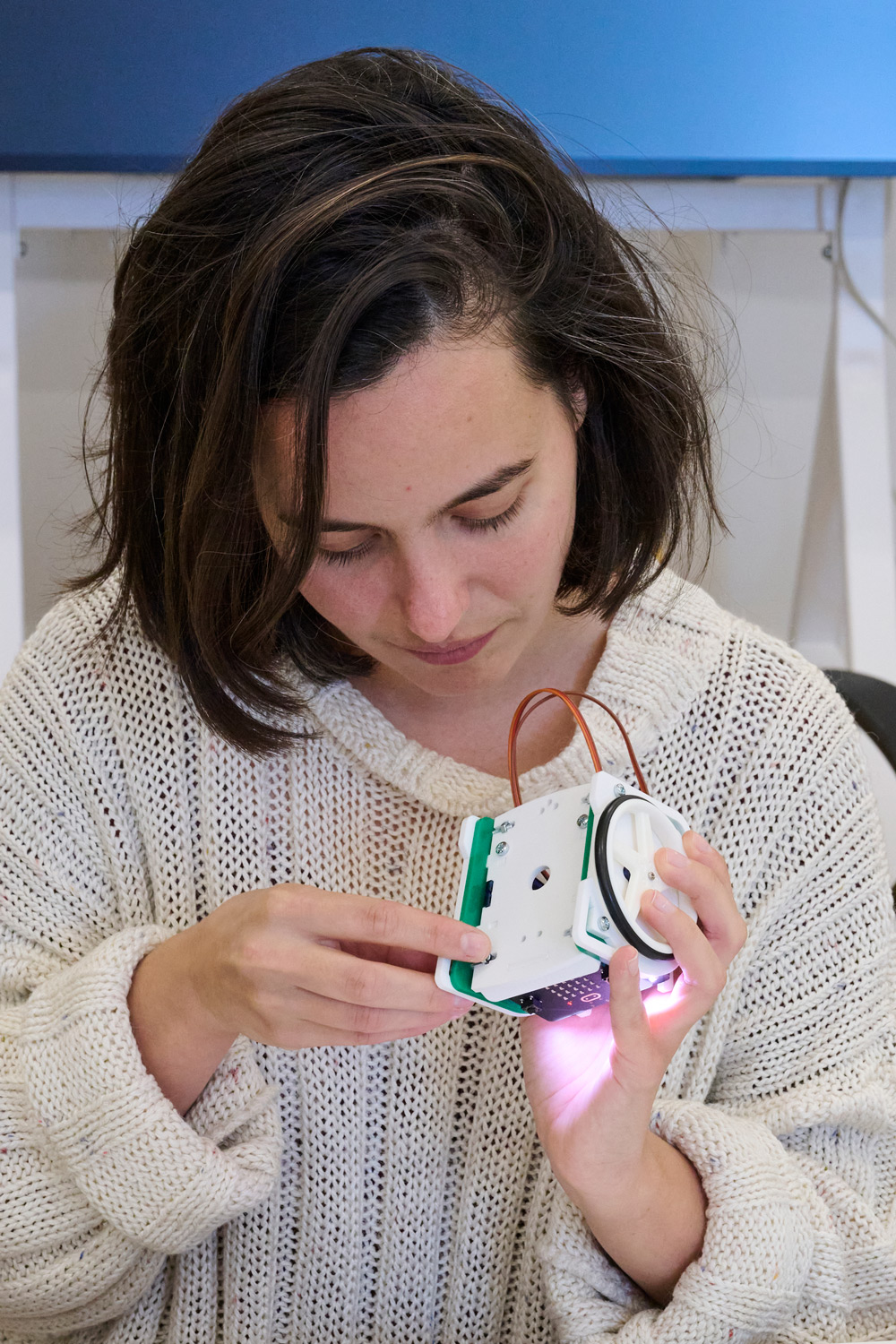
- Filter courses by study level: Undergraduate
- Filter courses by duration: Full time
- Filter courses by start month: September
- Filter courses by subject: Creative Technology and Robotics
Creative Technology and Robotics BSc (Hons)
Open the door to a career in physical tech. Build new skills that combine making with computer programming and creative flair.
